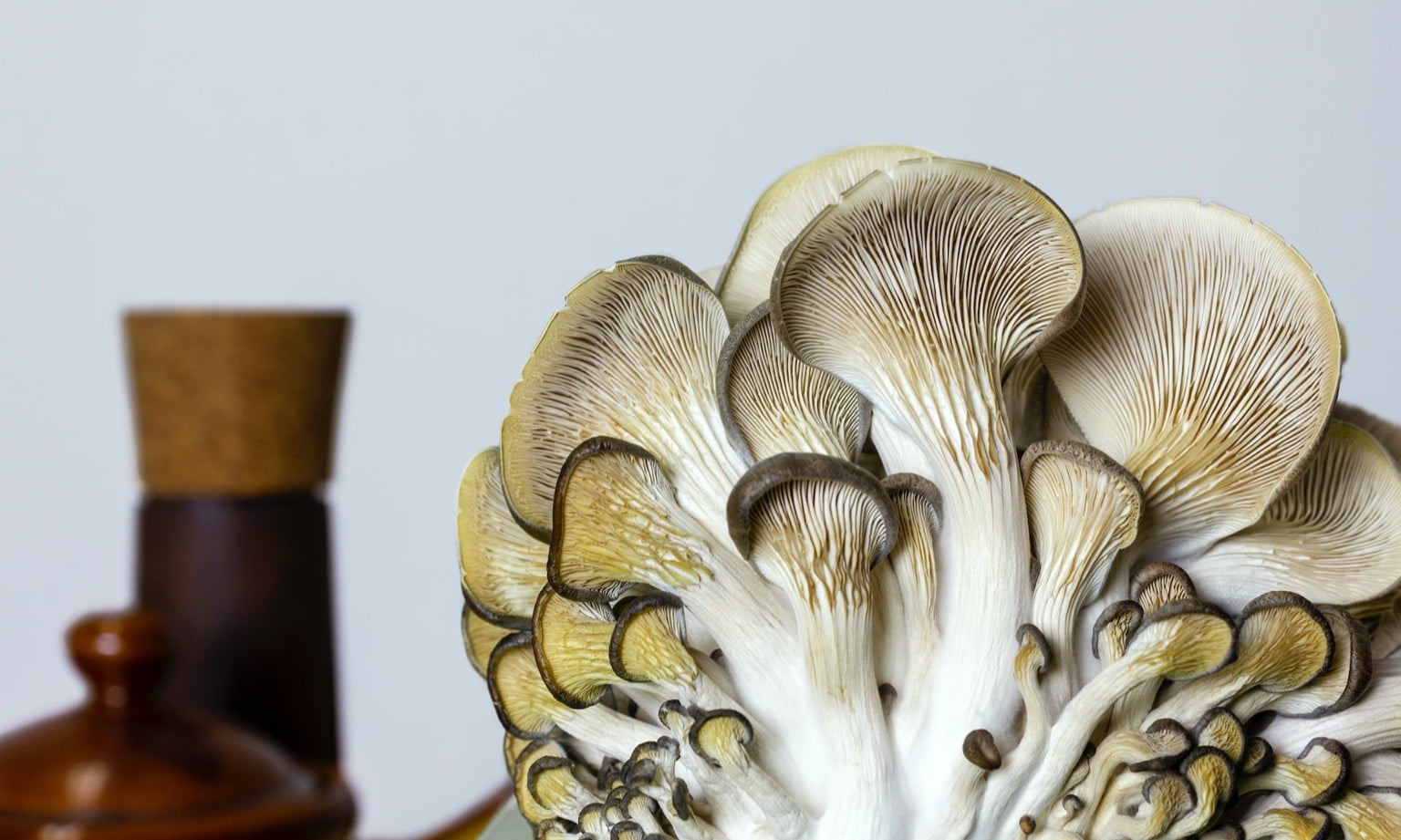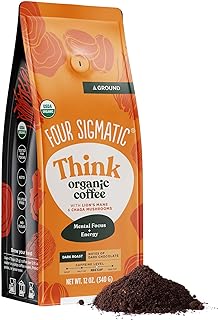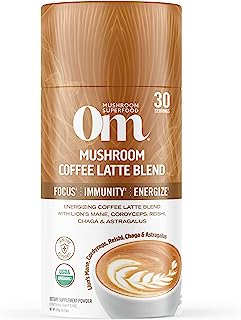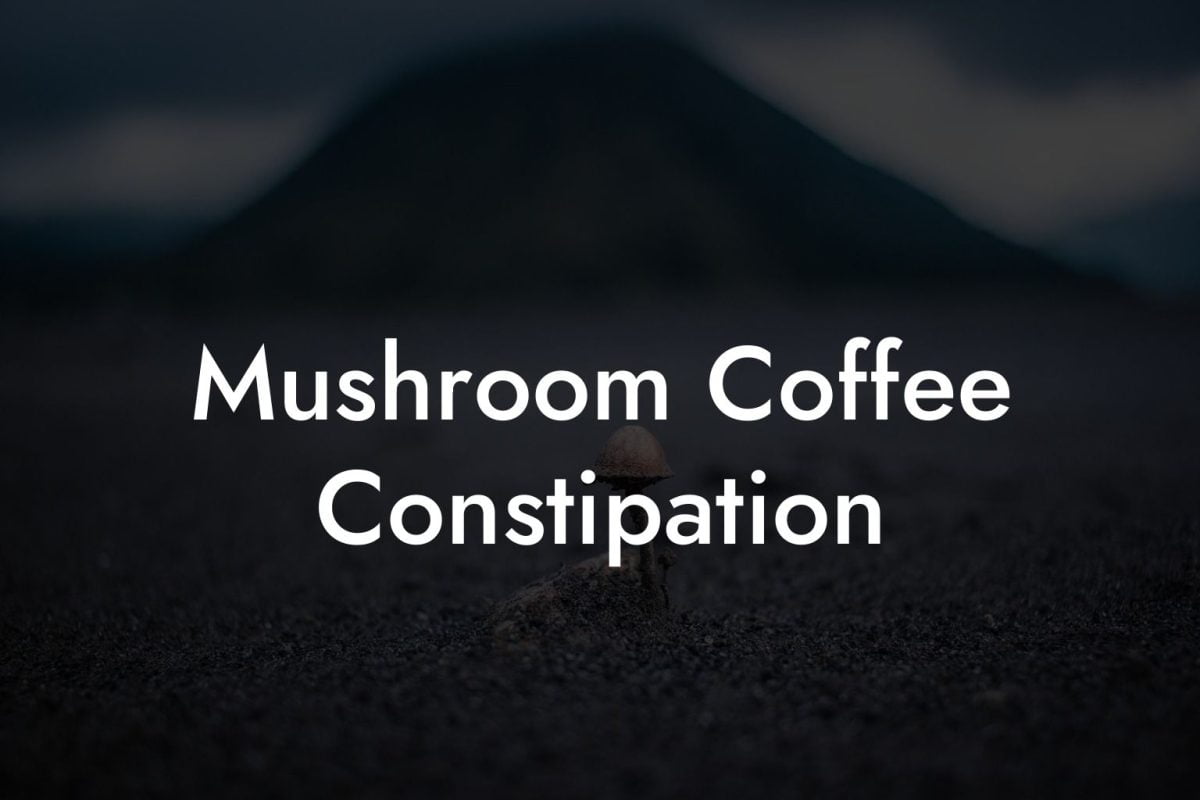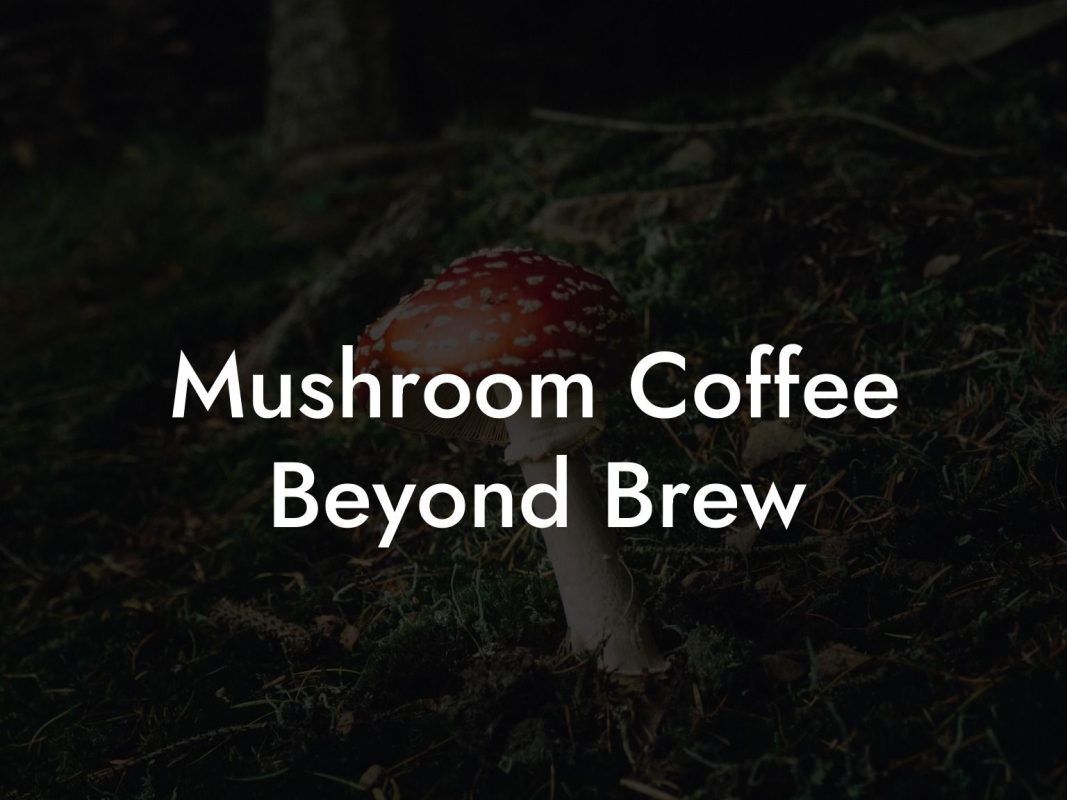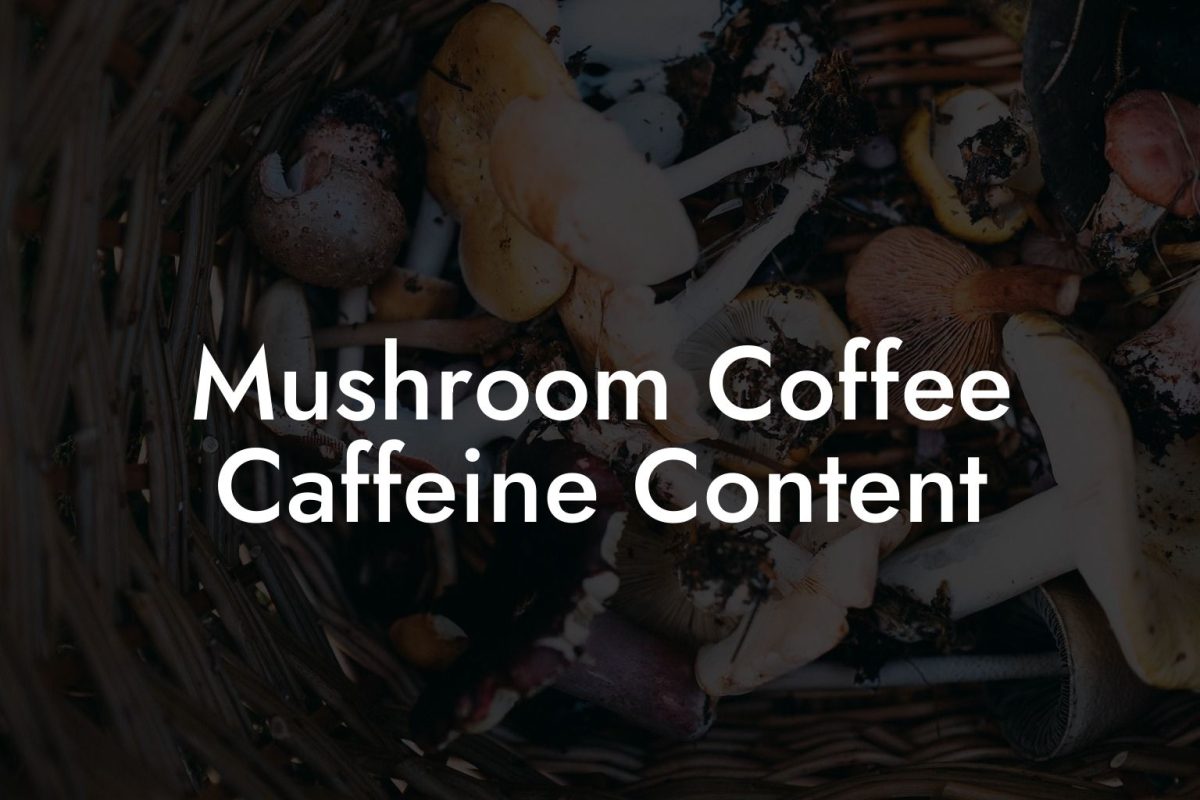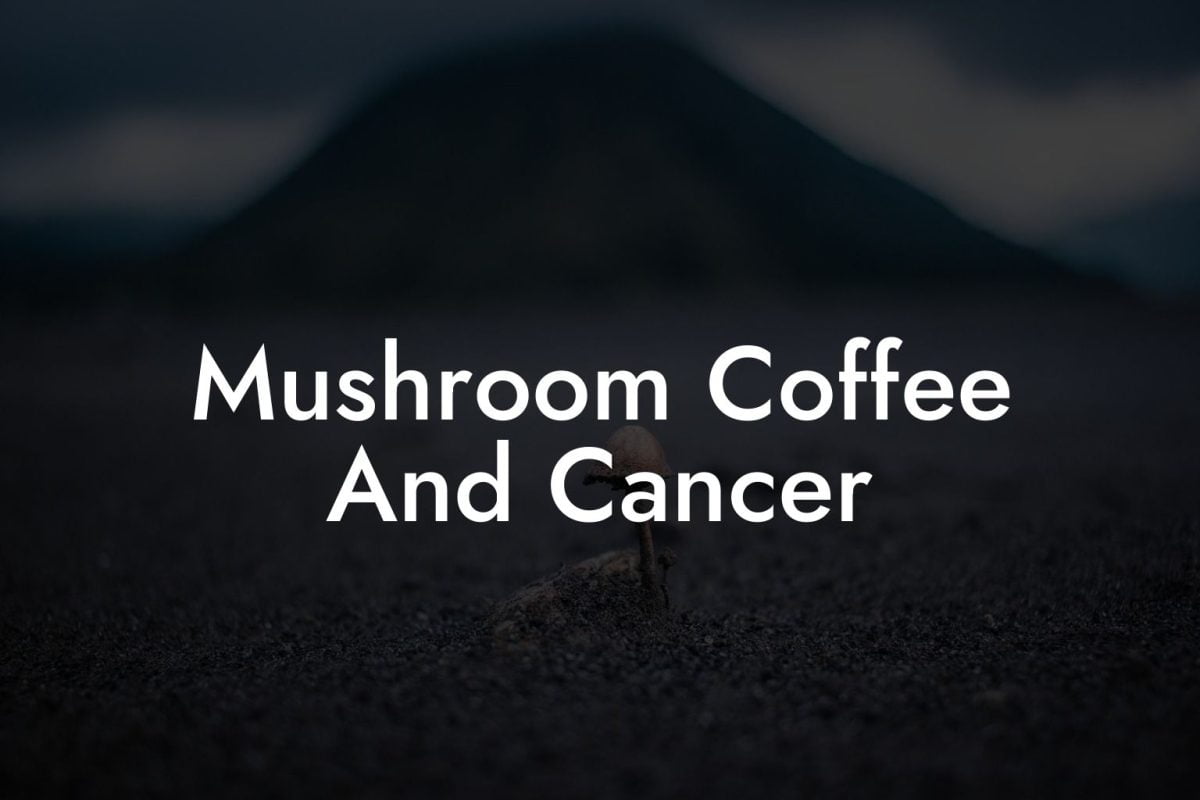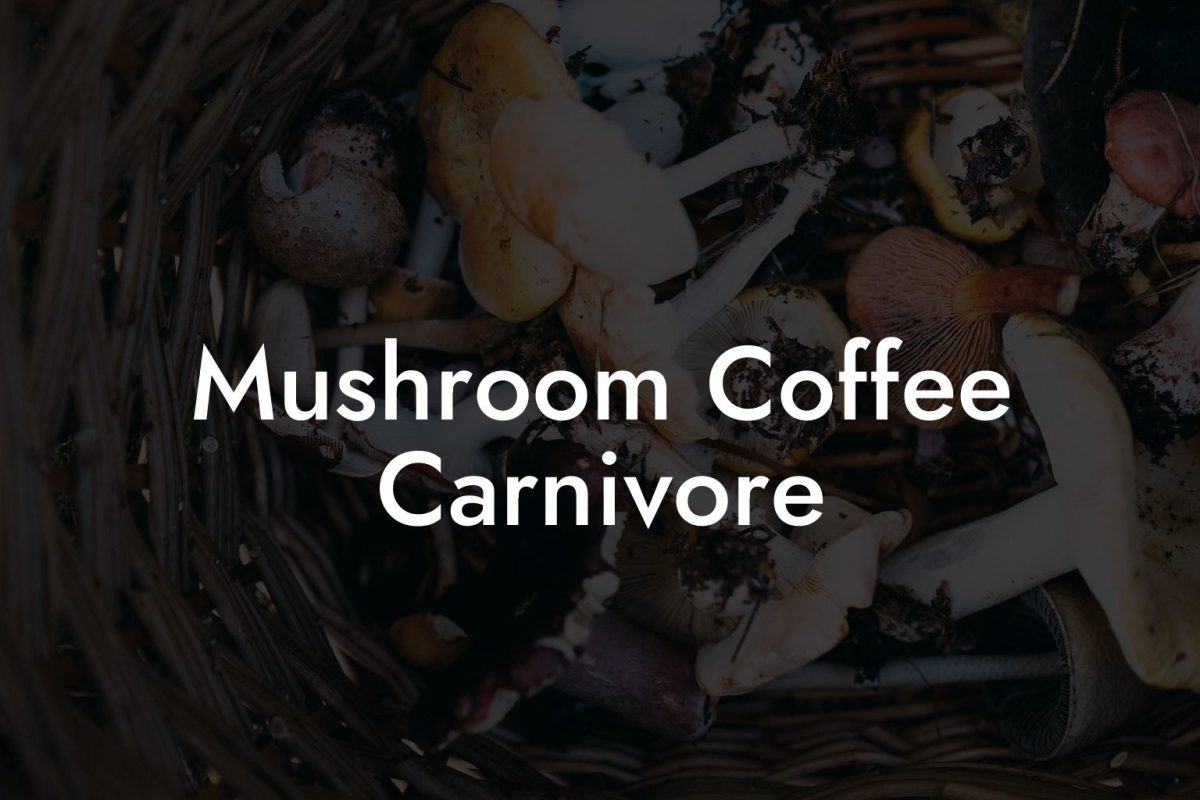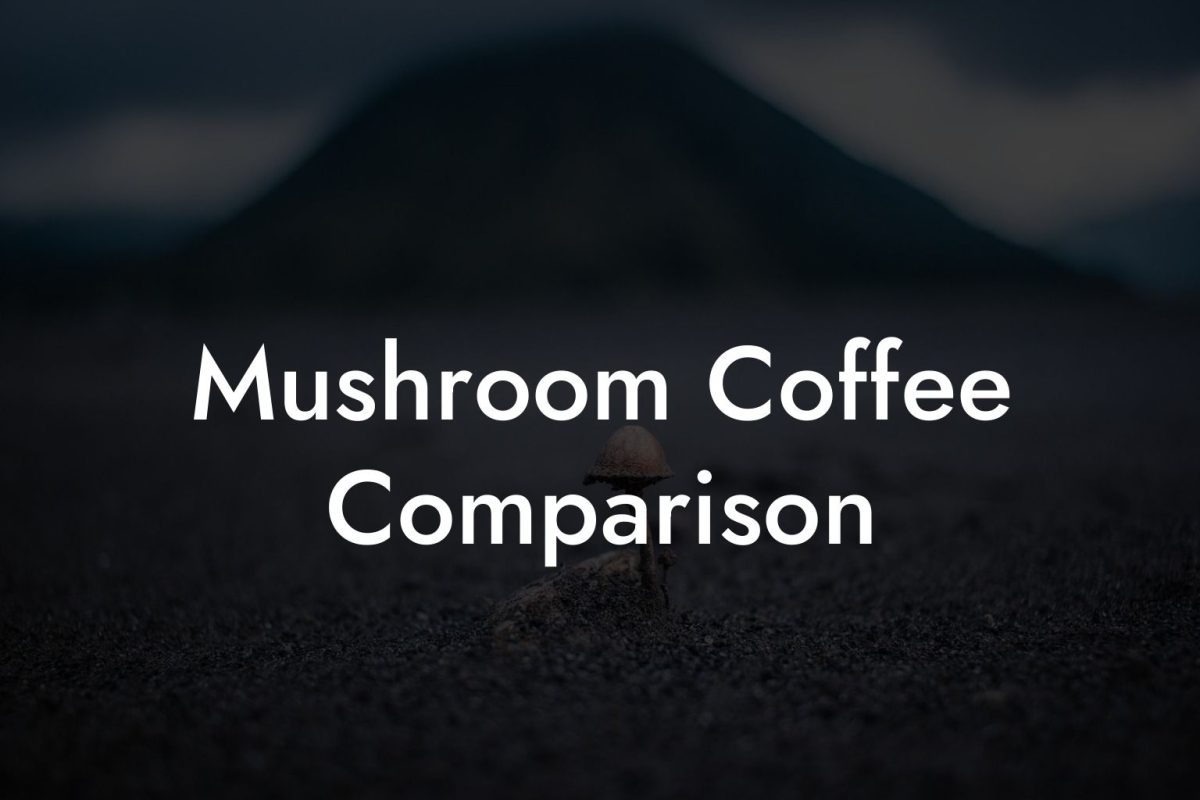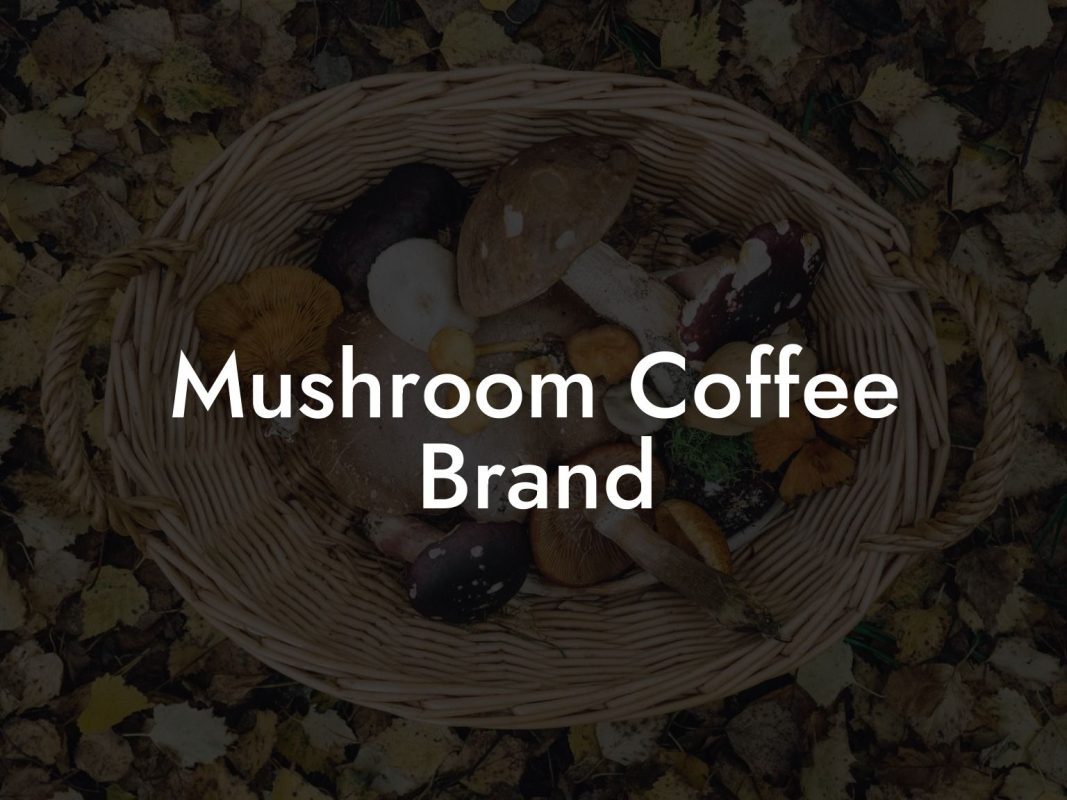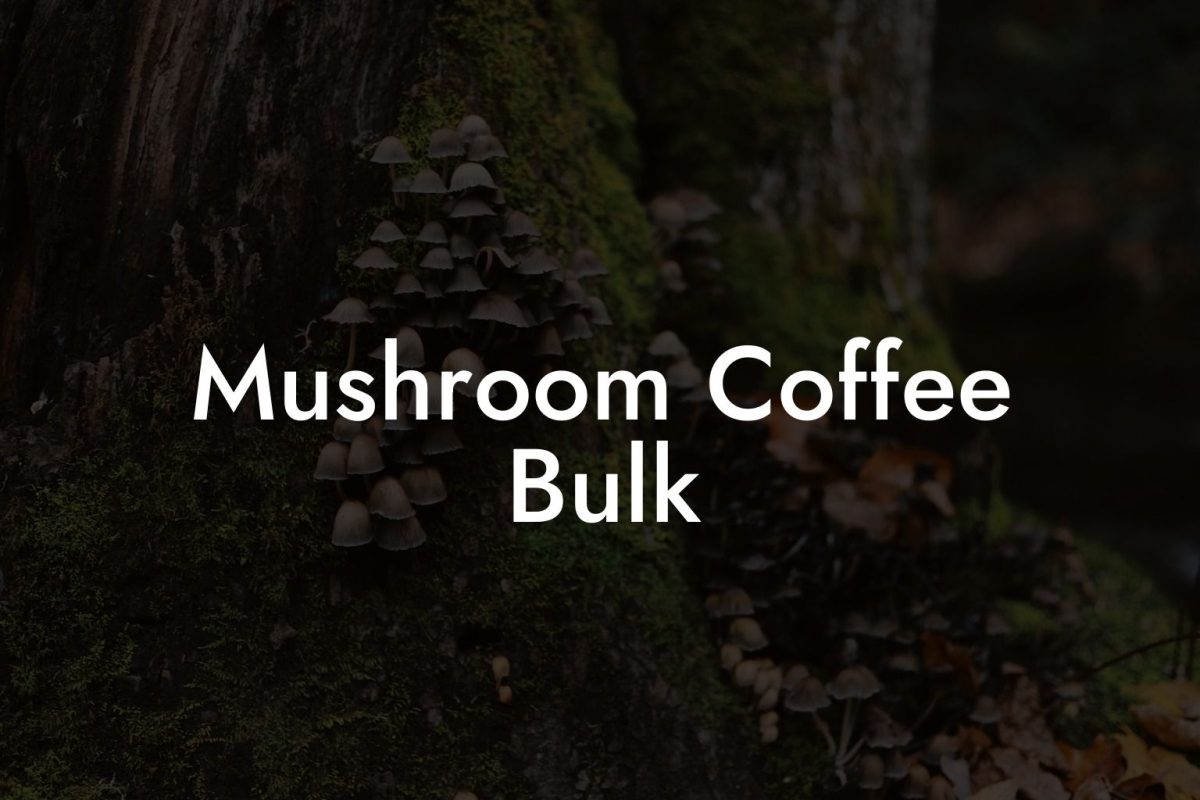Ever wondered if that daily cup of joe might be doing more harm than good? It’s time to spill the beans on why coffee, yes, your beloved brew, might not be your pal after all. In a world where millennials and Gen Z are increasingly eyeing alternatives like mushroom coffee for a healthier, balanced buzz, it’s worth asking: is coffee secretly a health saboteur? Grab your favorite mug (or your next mushroom latte) and join us on a candid, humorous journey through the dark side of coffee.
Quick Links to Useful Sections
- Understanding the Coffee Craze: A Bitter Reality?
- The Dark Side of Your Daily Brew: What’s Really in That Cup?
- The Caffeine Conundrum: How Does It Affect Your Mind?
- Boost or Bust: The Fine Line
- The Domino Effect of Caffeine Overload
- Sleep Deprivation: The Hidden Cost of Your Caffeine Kick
- Digestive Drama: When Coffee Ruffles Your Stomach’s Feathers
- Hormone Havoc: The Subtle Saboteur of Your Internal Balance
- Dehydration and Nutrient Loss: The Sneaky Side Effects
- Coffee Dependency and Withdrawal: Caught in the Caffeine Cycle
- The Not-So-Sweet Side Effects: Heart Rate, Blood Pressure, and Bone Health
- Spotlight on Mushroom Coffee: A Refreshing Alternative
- Lifestyle Considerations: Rethinking Your Daily Ritual
- Integrating Nutritional and Lifestyle Approaches: Swap Your Brew
- Morning Ritual Reinvented
- Balance Is Key
- A Personalized Caffeine Replacement Plan
- User Experiences: Real Stories from the Coffee Convert Community
- The Jitter-Free Awakening
- Breaking the Dependency Cycle
- Rediscovering a Balanced Life
- Creating Your Personalized Caffeine Replacement Plan
- Step 1: Assess Your Current Intake
- Step 2: Gradual Reduction
- Step 3: Incorporate Mindfulness Practices
- Step 4: Rethink Your Morning Routine
- Step 5: Monitor and Adjust
- The Road Ahead: Your Health, Your Choice
- Integrative and Holistic Coffee Health FAQs: Your Questions Answered
- Your Next Steps: Embracing a Healthier Brew
Understanding the Coffee Craze: A Bitter Reality?
Coffee isn’t just a drink; it’s a ritual, a culture, and for many, the kick-start to a chaotic, modern life. From avocado toast to Instagram-worthy flat whites, coffee culture is everywhere. But beneath that frothy surface lies a complex brew of chemicals, caffeine overloads, and often overlooked downsides. With every sip you take, you may be inadvertently inviting health issues that clash with your desire for a clear mind and a vibrant lifestyle.
Although coffee has its champions, raving about antioxidants and energy boosts, recent evidence suggests it might also stir up some unwanted side effects. For those who lean toward innovative alternatives like mushroom coffee, which promises tranquility and an immune boost without the jitters, the debate is more relevant than ever.
In our caffeine-fueled world, it's crucial to dissect what coffee really does to your body. Whether you're a hardcore coffee aficionado or just casually sipping to get through your hectic day, understanding these hidden effects can empower you to make informed choices.
The Dark Side of Your Daily Brew: What’s Really in That Cup?
Let’s cut to the chase: coffee isn’t all rainbows and unicorns, even if you’re instantly charmed by its aroma. Here’s a look at the less-discussed downsides that might be lurking behind your morning ritual:
Looking For The Best Mushroom Coffee? You'll Love These:
- Heightened Anxiety and Jitters: That extra shot of espresso? It might leave you buzzing with more anxiety than energy. The high caffeine content can overstimulate your nervous system, leading to increased heart rate and tension.
- Sleep Disruption: If you’re finding yourself tossing and turning at night, coffee could be the sneaky saboteur. Caffeine’s stimulating properties may wreak havoc on your natural sleep cycles, making it tough to catch those essential zzz's.
- Digestive Distress: For some, coffee can trigger a cascade of tummy troubles, from acid reflux and heartburn to an ultra-sensitive stomach that rebels against those bitter acids.
- Dehydration Dilemma: Despite being a liquid, coffee can be diuretic, meaning it might flush out more fluids than it provides, leaving your body parched and craving hydration.
- Nutrient Depletion: Excessive coffee consumption may affect how your body absorbs key minerals, such as calcium and magnesium, potentially impacting bone health.
Each of these factors might seem minor on its own, but together they can spiral into a full-blown health conundrum, particularly if you’re relying on coffee as your primary source of energy.
The Caffeine Conundrum: How Does It Affect Your Mind?
The mental effects of caffeine are a mixed bag. On one hand, it sharpens your focus and gets your neurons firing. On the other, it can ramp up the stress hormones and send you into a jittery frenzy. Let’s break it down:
Boost or Bust: The Fine Line
In small doses, caffeine acts as a mental stimulant, increasing alertness and concentration. But when consumption spirals out of control, it can tip the scales, resulting in anxiety, irritability, and even panic attacks. If you’re already juggling the pressures of social media, work, and personal life, adding too much caffeine into the mix might just push you past your limit.
The Domino Effect of Caffeine Overload
Consuming large amounts of caffeine can trigger a cascade of psychological effects. Beyond just feeling jittery, you might:
- Experience mood swings, one minute you’re riding high, the next you’re crashing into a slump.
- Face difficulties concentrating, making it a challenge to power through your study sessions or work projects.
- Suffer from exacerbated stress and anxiety, which in turn affects your overall well-being and decision-making.
Behavioral scientists have noted that the roller coaster of mood changes tied to caffeine consumption can sometimes lead to an unhealthy reliance on that periodic surge, rather than cultivating a natural, stable energy flow.
Sleep Deprivation: The Hidden Cost of Your Caffeine Kick
Nothing ruins a night like tossing and turning long after your coffee cup is empty. While caffeine might help you power through a marathon work session, its long-lasting stimulant effects can seriously disturb your sleep patterns.
Caffeine blocks adenosine, the neurotransmitter responsible for signaling when it’s time to rest. This blockage might mean that even if you try to wind down at bedtime, your body finds it hard to switch off, leaving you staring at the ceiling until the early hours of the morning.
The result? Chronic sleep deprivation. And as we all know, insufficient sleep isn’t just about feeling drowsy, it can lead to compromised cognitive function, increased stress, and even long-term health issues like heart disease and obesity. Plus, who can really keep up with the fast-paced demands of modern life when you’re running on empty?
Digestive Drama: When Coffee Ruffles Your Stomach’s Feathers
Let’s talk gut feelings, literally. Coffee is notorious for its acidic content, which can be a recipe for digestive havoc. For a good number of people, that seemingly innocent cup of coffee might trigger:
- Gastroesophageal Reflux Disease (GERD): The acidity in coffee can relax the lower esophageal sphincter, making it easier for stomach acid to creep up and cause heartburn.
- Irritable Bowel Syndrome (IBS): In sensitive individuals, coffee can exacerbate symptoms like cramping, bloating, and irregular bowel movements.
- Stomach Ulcers: Regular exposure to high levels of stomach acid might inflate the risk of ulcer formation, leaving you with pain and discomfort that’s hard to shake off.
The aftermath of these digestive issues isn’t something to laugh about. Chronic discomfort not only affects your day-to-day energy but can also lead to nutritional deficiencies if your gut isn’t absorbing nutrients as it should.
Hormone Havoc: The Subtle Saboteur of Your Internal Balance
When you think of hormones, you might imagine a delicate balance choreographed perfectly by your body. However, the introduction of high doses of caffeine can disrupt this harmony. Coffee can interfere with the balance of stress hormones like cortisol, which might lead to:
- Elevated Cortisol Levels: Persistent high cortisol levels can lead to increased stress, weight gain, and even disrupted sleep patterns.
- Adrenal Fatigue: Over time, constant caffeine stimulation might contribute to adrenal stress, leaving you more susceptible to fatigue and burnout.
- Insulin Sensitivity: There’s some evidence suggesting that caffeine consumption might impair insulin sensitivity, which can eventually pave the way for metabolic issues.
The result is an internal tug-of-war where your body’s natural balance is overshadowed by the relentless buzz of caffeine, a scenario that’s far from ideal for long-term health.
Dehydration and Nutrient Loss: The Sneaky Side Effects
Coffee might initially seem like the hydrating elixir of champions, after all, it’s a liquid, right? But the reality is a bit more complicated. Caffeine is a well-known diuretic, meaning it increases your body’s production of urine, which can lead to dehydration if you’re not compensating with water.
Dehydration can have a domino effect on your overall health, influencing everything from your skin’s radiance to your body’s ability to regulate temperature and flush out toxins. Moreover, excessive coffee consumption might interfere with the absorption of crucial nutrients like calcium and magnesium, impacting not only your bone health but also your muscle function.
For those striving to maintain an active, vibrant lifestyle, these dehydration and nutrient depletion issues can undermine your healthiest efforts.
Coffee Dependency and Withdrawal: Caught in the Caffeine Cycle
Let’s face it, coffee is addictive. Its ability to provide a quick burst of energy and enhanced focus can make it a crutch for many, leading to an unhealthy cycle of dependency. The catch? Over time, your body builds a tolerance, and you end up needing more and more just to achieve that same buzz.
When you finally try to kick the habit, you might experience withdrawal symptoms like headaches, irritability, and even fatigue. The physical and mental strain of navigating caffeine withdrawal can be a real downer, reinforcing the notion that once you’re in the clutch of coffee dependency, breaking free isn’t easy.
This dependency not only affects your daily routines but can also leave you feeling trapped in a cycle that disrupts your natural energy rhythms and overall well-being.
The Not-So-Sweet Side Effects: Heart Rate, Blood Pressure, and Bone Health
Beyond the immediate buzz, coffee’s effects can reach deep into your cardiovascular system and skeletal structure. For some, the rapid heart rate and elevated blood pressure induced by caffeine can spell trouble, especially for those already at risk for heart conditions.
Studies have shown that excessive coffee consumption may be linked to:
- Increased Heart Rate: Caffeine’s stimulating nature can push your heart into overdrive, causing palpitations and an irregular heartbeat.
- High Blood Pressure: The stimulatory effects of caffeine may lead to short-term spikes in blood pressure, which, over time, could strain your cardiovascular system.
- Bone Density Issues: There’s some evidence that too much coffee might interfere with calcium absorption, potentially leading to lower bone density and a higher risk for fractures.
For health-conscious individuals who value both a strong heartbeat and strong bones, these potential side effects underscore the importance of moderation, or, in some cases, exploring healthier alternatives.
Spotlight on Mushroom Coffee: A Refreshing Alternative
If you’re nodding along and thinking, “There has to be a better option,” you’re not alone. Enter mushroom coffee, a growing trend that’s capturing the imagination of millennials and Gen Z alike. This innovative blend typically combines high-quality coffee with medicinal mushrooms like lion’s mane, chaga, and reishi. The idea is simple: retain the rich, robust flavor of coffee while softening the adverse effects of caffeine.
Mushroom coffee offers a more balanced energy boost without the notorious jitters. These potent fungi bring a host of health benefits, including:
- Enhanced Mental Clarity: Lion’s mane, for instance, is appreciated for its neuroprotective properties that support cognitive function and brain health.
- Immune Support: Chaga mushrooms are rich in antioxidants and have been linked to improved immune responses, which is increasingly important in our health-aware era.
- Stress Reduction: Reishi is known for its calming effects, helping to mitigate the stress-induced impacts of caffeine overconsumption.
Not only does mushroom coffee give you a more subtle, sustained energy release, but it also plays nicely with your body’s natural balance. For those who are tired of the roller coaster ride of traditional coffee, mushroom coffee offers a refreshing alternative, one that aligns with a holistic, health-first lifestyle.
Many users rave about the switch, noting that their energy levels stay more consistent throughout the day, without the inevitable afternoon crash. Plus, the added benefits of mushrooms create a wellness synergy that’s hard to ignore.
Lifestyle Considerations: Rethinking Your Daily Ritual
It’s clear that coffee, in its traditional form, comes with a side of challenges. But the story doesn’t have to end in a bitter brew. By rethinking your daily ritual and exploring alternatives like mushroom coffee, you can embrace a more balanced lifestyle that honors both your body and mind.
Here are a few lifestyle shifts to consider if you’re ready to break the coffee dependency cycle:
- Prioritize Hydration: Make water your first port of call. If you must have a caffeine fix, balance it out with plenty of H2O throughout the day.
- Mindful Transition: Transitioning to mushroom coffee or low-caffeine alternatives slowly can help ease your body’s reliance on a caffeine spike, reducing withdrawal headaches and jittery moods.
- Nutrient-Dense Diet: Fuel your body with foods rich in vitamins, minerals, and antioxidants that support sustained energy levels and optimal brain function.
- Regular Exercise: A mix of cardio, strength training, and mindful practices like yoga not only boosts your overall health but also helps regulate sleep and stress levels.
- Mindfulness and Meditation: Allocate time each day to unwind. A few minutes of meditation or deep breathing can recalibrate your nervous system far better than another cup of coffee.
These lifestyle tweaks, paired with a thoughtful approach to your caffeine intake, can help mitigate many of the negative side effects traditionally associated with coffee consumption.
Integrating Nutritional and Lifestyle Approaches: Swap Your Brew
Personal empowerment is at the heart of making positive changes in your lifestyle. Instead of relying solely on the caffeine jolt from coffee, why not integrate a holistic approach that involves nutrition, stress management, and smart beverage choices? Here are some tips to reframe your daily routine:
Morning Ritual Reinvented
Start your day with a mindful ritual. Consider beginning your morning with a glass of water, a brief meditation session, and a nutrient-packed smoothie. Then, make the switch from standard coffee to a cup of mushroom coffee, one that offers a rich medley of adaptogenic benefits and sustained clarity.
Balance Is Key
Embrace balance by diversifying your sources of energy. Instead of leaning exclusively on a bitter brew, incorporate foods and beverages that sustain energy without the crash. Think of herbal teas, green juices, and, of course, carefully crafted mushroom coffee blends that support your wellness journey.
A Personalized Caffeine Replacement Plan
If you’re ready to reclaim your energy and overall health, it might be time to create a personalized plan that suits your lifestyle. This plan could include gradually reducing your reliance on traditional coffee while integrating healthy replacements and mindful activities that help bridge the gap.
Over time, these small adjustments accumulate, resulting in a lifestyle that not only respects your body’s natural rhythms but empowers you to thrive without the highs and lows of conventional caffeine consumption.
User Experiences: Real Stories from the Coffee Convert Community
Nothing speaks louder than real-life transformation stories. Across the country, individuals are sharing their journeys from being overdependent on coffee to discovering a more balanced life with alternatives like mushroom coffee. Let’s take a peek into some of these transformative experiences:
The Jitter-Free Awakening
Alex, a young creative navigating the pressures of deadlines and social media engagement, recalls the perpetual state of anxious energy fueled by countless cups of coffee. “I was on a constant roller coaster, one minute, I was hyper-focused, and the next, I was crashing hard,” Alex says. After switching to mushroom coffee, Alex noticed not only a smoother, more sustained energy boost but also improved clarity that made those long creative nights far less stressful.
Breaking the Dependency Cycle
Jordan, a college student juggling classes and a hustle-packed internship, shared how traditional coffee had cornered their day until persistent sleepless nights forced a re-evaluation. “I didn’t realize how much my health was suffering until I finally tried mushroom coffee. The switch not only helped me sleep better but also reduced the constant feeling of anxiety,” Jordan explains.
Rediscovering a Balanced Life
For many, the shift away from traditional coffee isn’t just about cutting back on caffeine, it’s about rediscovering what a balanced life really feels like. Countless testimonials reveal declines in chronic headaches, improved digestion, and a newfound appreciation for mindful, sustained energy throughout the day.
These narratives aren’t isolated incidents; they’re part of a growing movement toward healthier, more conscious consumption choices that resonate with the Gen-Z and millennial ethos.
Creating Your Personalized Caffeine Replacement Plan
So, how do you transition from a caffeine-dependent lifestyle to one that embraces balance, mindfulness, and alternatives like mushroom coffee? Here’s a step-by-step plan to help you reshape your daily ritual:
Step 1: Assess Your Current Intake
Keep a log of your daily coffee consumption. Note the times, quantities, and how you feel before and after each cup. Awareness is the first step toward change.
Step 2: Gradual Reduction
Instead of quitting cold turkey, start by mixing in mushroom coffee with your regular brew. Over the course of a few weeks, slowly increase the proportion of mushroom coffee as you decrease the regular coffee until you’re ready to make the full switch.
Step 3: Incorporate Mindfulness Practices
Integrate stress-reducing practices such as meditation, yoga, or deep breathing into your routine. These practices can help ease withdrawal symptoms and balance your energy naturally.
Step 4: Rethink Your Morning Routine
Consider starting your day with a hydration boost and a nutrient-packed breakfast before your caffeine fix. A clearer mind and well-nourished body can better handle the transition.
Step 5: Monitor and Adjust
Keep track of how your body responds to the change. Adapt your plan based on your energy levels, mood, and overall health. Chat with a nutritionist or health coach if you need personalized advice.
This personalized plan isn’t just about reducing coffee, it’s about reclaiming your health and transforming your daily routine into something that fuels you sustainably and healthily.
The Road Ahead: Your Health, Your Choice
The journey to a healthier lifestyle takes courage, commitment, and the willingness to break away from habits that no longer serve you. While coffee has long been a trusted companion in our fast-paced lives, its potential downsides, from anxiety and sleep disturbances to digestive issues and nutrient depletion, are prompting many to reconsider its role in our daily routines.
For those seeking a more balanced approach to energy and well-being, mushroom coffee emerges as a compelling alternative. By blending traditional coffee’s rich flavor with the holistic benefits of medicinal mushrooms, this modern brew offers a gentle, sustained boost without the jittery, crash-inducing side effects.
Your body deserves care and respect, and choosing to reimagine your daily ritual is a bold step in that direction. By arming yourself with knowledge, integrating mindfulness and nutritional strategies, and exploring healthier alternatives, you pave the way for a vibrant future where health and happiness reign supreme.
This isn’t just a wake-up call, it’s an invitation to reclaim control over your health, reimagine your mornings, and say goodbye to the negative side effects of traditional coffee. The power is in your hands, and the journey to a better, balanced life begins with that very first mindful sip.
Integrative and Holistic Coffee Health FAQs: Your Questions Answered
Below are some frequently asked questions to address common concerns about coffee’s potential health pitfalls and the benefits of alternatives like mushroom coffee:
1. Why do some experts claim that coffee is bad for your health?
While coffee does offer antioxidants and a quick energy boost, excessive intake can lead to issues like anxiety, sleep disruption, digestive distress, dehydration, and hormonal imbalances.
2. How does caffeine affect my mental health?
In moderate amounts, caffeine can enhance alertness. However, too much caffeine may trigger anxiety, irritability, mood swings, and even exacerbate stress levels.
3. Can coffee really interfere with my sleep patterns?
Yes, caffeine blocks adenosine, the neurotransmitter that signals sleepiness, making it harder to fall asleep and reducing overall sleep quality.
4. What digestive issues can coffee cause?
Coffee’s high acidity may lead to acid reflux, heartburn, and in some cases, exacerbate symptoms of irritable bowel syndrome (IBS) or increase the risk of stomach ulcers.
5. Does coffee affect nutrient absorption?
Excessive coffee consumption can interfere with the absorption of key minerals like calcium and magnesium, which are essential for bone and muscle health.
6. How is mushroom coffee different from regular coffee?
Mushroom coffee blends traditional coffee with medicinal mushrooms such as lion’s mane, chaga, and reishi, offering a smoother, more balanced energy boost with additional health benefits like improved cognitive function and immune support.
7. Can switching to mushroom coffee really alleviate the negative side effects of regular coffee?
Many users report experiencing fewer jitters, a reduced incidence of anxiety and digestive issues, and improved focus when they switch to mushroom coffee, a testament to its gentler impact on the body.
8. What are the long-term health implications of excessive coffee consumption?
Over time, a heavy reliance on coffee can contribute to chronic sleep deprivation, hormonal imbalances, cardiovascular strain, and nutrient depletion, ultimately affecting overall well-being.
9. Is it easy to transition from regular coffee to mushroom coffee?
Transitioning gradually can help minimize withdrawal symptoms. Mixing mushroom coffee into your regular brew and slowly adjusting the ratio over time can ease the process.
10. How do I decide if mushroom coffee is right for me?
If you're experiencing the downsides of traditional coffee, such as jitteriness, sleep issues, or digestive discomfort, and are seeking a balanced, health-conscious alternative, mushroom coffee could be worth trying. Always consult with a health professional if you have any concerns.
Your Next Steps: Embracing a Healthier Brew
The call to switch gears might feel intimidating at first, but every journey begins with a single, mindful sip. Recognizing that your daily coffee fix could be a hidden source of health challenges is the first step towards reclaiming your well-being. Whether it’s the jittery anxiety, the sleep sabotage, or the gut-wrenching digestive issues, you now have the knowledge to pivot toward a more holistic approach.
With alternatives like mushroom coffee gaining traction, you’re presented with a tasty, balanced option that nourishes both body and mind. This isn’t about demonizing coffee completely, after all, moderation remains key, but about empowering you to explore choices that align with your vibrant, health-conscious lifestyle.
As you embark on this transformative journey, keep in mind that every little adjustment matters. Small shifts in your routine can lead to significant improvements in overall energy, mental clarity, and long-term wellness. Armed with insights, a personalized plan, and the supportive community of fellow coffee connoisseurs turned mindful sippers, you’re well on your way.
Embrace the change, experiment with alternatives, and celebrate each step toward a more balanced, energetic life. Your journey to a healthier brew isn’t just a trend, it’s a lifestyle choice that reflects your commitment to living your best, most vibrant life.
Here’s to a future where your cup is filled with intention, nourishment, and the freedom to choose what truly supports your health. Cheers to that mindful sip, and to a life well-lived!
Looking For The Best Mushroom Coffee? You'll Love These:
Useful Interruption: Dive deeper into the world of Mushroom Coffee with our most popular sections. If there is anything you think is missing or anything you would love for us to write about, just give us a shout.
- Mushroom Coffee Equipment & Product Reviews
- Mushroom Coffee Recipes & Creative Variations
- Mushroom Coffee Guides & Troubleshooting
- Mushroom Coffee Brewing & Preparation Techniques
- Model Rocket Advanced Rocketry & Innovations
- Mushroom Coffee Fundamentals
- Model Rocket Equipment Reviews & Digital Tools
- Mushroom Coffee Health Benefits & Wellness
- Mushroom Coffee Mycology & Scientific Insights
- Mushroom Coffee Community, Lifestyle & Engagement
I tried mushroom coffee this morning and told my friend, "This brew is spore-tacular!" He shot back, "Guess that's why it's such a cap-tivating way to kickstart your day!"

